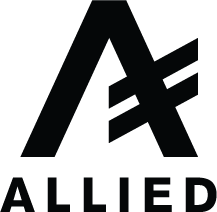
Metal roofs are a roofing technique that uses durable and impermeable tiles and metals to cover the top of the house. The most commonly used materials are copper, zinc and steel alloys. Over the years, metal roofs have gained popularity as they are long-lasting compared to other roofing materials; their resale value is therefore too high. When setting up roofs, most homeowners always put in mind the dangers of lightning strikes. A common perception among many people is that metal roof attract lightning strikes, but the truth is metal roof make lightning strikes less hazardous. The impact of lightning hits mostly depends on the materials used in constructing the building and whether it has sound lightning protection systems.
Types of metal roofing materials
The term metal roof incorporates a wide range of materials, not just steel roof as most of you think. The type of materials used in roofing will, to a large extent, depend on your location. For instance, an aluminium roof is an incredible choice for those living in salty areas since it resists rust.
Zinc roofing
Thanks to its fantastic natural properties, zinc is mostly used for commercial steel building projects as it can be easily moulded into a variety of shapes. You have no reason to worry about the chalking property of zinc as it can be cleaned. Generally, zinc has a low melting point which makes it an excellent choice for a roofing metal. Another unique aspect of zinc metal is that it is fully recyclable and stocked in almost all markets. Zinc is ordinarily soft, and builders can easily use hand tools during the construction process. Although it comes with notable benefits, there are some few downsides to using it, including the fact that it corrodes quickly, especially when exposed to moisture. The good news is that this only occurs when the condition is unfavourable for the patina to form. Zinc roofing materials are mostly used in designing commercial and residential buildings and also educational institutions.
Copper roofing
Copper roofs are not only robust but have a longer lifespan too, taking up to five decades or more if you regularly do repair and maintenance. Copper material is a good option for areas which generally experience heavy rainfall and snowfalls. The metal is essentially rust-resistant and therefore does not need any additional coating. The material is typically soft, and light hence does not put much weight on the building. Even though copper materials comes with numerous benefits, it is slightly costly as compared to other roofing materials. Additionally, the material is prone to theft because of its elevated scrap value. It is majorly used in installing roofs for multistory buildings and residential homes.
Aluminium roofing
Like we mentioned earlier, aluminium is an incredible option for coastal areas due to its rust-resistant properties. There is a common belief among most of you that aluminium is rarely affected by corrosion which is not valid. Once it comes into contact with atmospheric conditions, the metal immediately reacts.and this reaction is what offers it adequate protection. The natural patina of aluminium is considered unattractive hence it is used with a beautifully painted coating. Aluminium materials do not rust easily; the exterior of the metal usually reacts with oxygen to generate a layer of aluminium oxide that prevents any more corrosion from occurring. Just like copper, aluminium is also costly compared to other materials.
Steel roofing
Steel is one of the most commonly used materials in construction sites. Steel materials are generally rigid, and their prices are friendly. According to research, most of the steels we use today are made from already recycled materials, making it the most effective green material to work with. Steel roofing comes in three major types including weathering steel, galvalume and Galvanized steels. Weathering steel was formerly used in the construction of bridges and other massive structures. Galvanized steel is developed with zinc coating to prevent the steel from getting corroded. Galvalume steel, on the other hand, is designed with zinc and aluminium coating to prevent the steel from getting corroded. Distinct benefits of steel over other materials include exceptional versatility and affordable cost. As one of the hardest metals, steel is incredibly used on any weather, specifical regions with high winds and hail.
Advantages of a metal roof

The decision to choose a new roof for your home or multistory steel buildings can be overpowering, mainly because there are myriad options to select from. There are various factors you need to consider before deciding on reasonable roofing option and price is just one of them. You need a roofing system that will not only protect you against adverse weather conditions but also one that serves for many years. Metal roofing is one of the most effective roofing systems that offers you a remarkable benefit package that comprises of the following ;
Metal materials are eco-friendly
Metal roofings are typically developed with approximately 25%-95% recycled materials. In addition, the metal roof can still be recycled after their life span comes to an end.
Metal roofings are long-lasting
Depending on how often you conduct repairs and maintenance, metal roofings can serve you for many years. Some materials used in roofing can withstand strong wind gusts up to 140 miles per hour.
They are safe
According to most people’s perception, metal is a conductor of heat; therefore, it is prone to dangers of lightning strikes, but that is not the case. Metal roofings minimize the impact of a lightning strike in case it occurs.
They are energy efficient
Metal roofings ordinarily reflect heat from the sun, therefore minimizing cooling costs by about 10-25%. The air space between the roof deck and the metal ensures that heat transfer is reduced.
Metal is insect resistant
As compared to other roofing systems, metal roofing is free from insects as they fail to conserve moisture. These insects are a nuisance to people is therefore advisable to install metal roofing systems.
Cons of metal roofing systems
They are noisy
This is apparent during heavy rainfall or hailstorms. The most viable solution to this problem is the addition of extra insulation during the setup.
Metal roofings are expensive
Not every person can afford metal roofs as they are more costly compared to other roofing techniques. If you are planning to incorporate metal roofing system in your home, you should be at home more often to leverage the benefits.
Types of metal roofings for your home

Most commercial building owners and homeowners are shifting to metal roofings as their Construction long-term solutions. Metals generally have a longer lifespan and are more energy-efficient compared to tiles and shingles. There are hundreds of metal roofing styles to choose from and here are a few examples ;
1. Exposed fastener panels
This roofing type comprises of overlapping panels that are directly fixed onto the roof deck. The term exposed is used because the fastener remains conspicuous even after being installed. The pin is however painted the same way as the roofing panels to make them less evident. Exposed fastener panels usually are 36 inches wide, translating to less labour. Thanks to its extended-lasting features and the ease of setting up, the exposed fastener is a top selection for many clients.
2. Standing Seam systems
Also known as concealed fastener panels, standing Seam system combines a sequence of adjoining panels that are interconnected by raised seams. In this type of roofing system, there are no revealed fasteners as the panels are connected together. A distinct feature about standing Seam roofs is that panels can enlarge or possibly decrease in size depend with temperatures. This concept not only makes them durable but also causes modest wear and tear on the deck.
3. Metal shingles and tiles roofing system
The roofing system encompasses the use of traditional clay tiles, slates and shingles to give your roof an exquisite look. If you are looking for a simple and price-friendly roofing option, then the use of metal shingles is an excellent choice for you.
Metal roof tiles
Aside from its appealing look, metal roof tiles are light and energy-efficient in the long – run. A met-tile roof is identical tiles, and a lot of people believe that it is tiled, although it is not.
Metal roofings have become popular recently and homeowners consider using them because of the vast benefits that they offer. It’s longetivity and affordability makes it a top choice for commercial property owners and residential homeowners.



